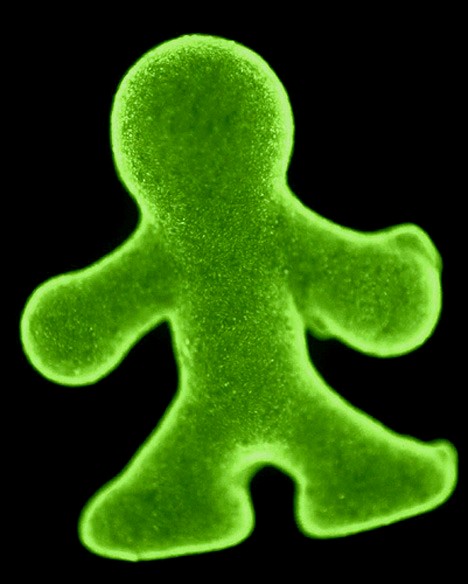
The microbe hasn't yet been officially named, but it may end up being called Mycoplasma laboratorium, referencing its origins. The goal behind the research is to be able to produce bacteria and microbes on-demand that can be used as biofuels, break down oil slicks, eat up carbon dioxide from the atmosphere, and even create vaccines fortreating diseases. This is the first step in that process, however, which just consisted of the creation of a near-clone of another bacterium.
Previously, the scientists had managed to create a synthetic genome, and had been able to transplant one bacteria's genome into another, but this is the first time that the two processes have been combined for the creation of a cell with an entirely synthetic genome inside. The cell reproduced over a billion times, making copies that were controlled by the synthetic DNA. It's the first time that synthetic DNA has been in complete control of a cell.
The research was reported in the journal Science, which Venter told: "This is an important step both scientifically and philosophically, it has certainly changed my views of definitions of life and how life works." However, some have raised concern that synthetic organisms could escape and cause unforeseen environmental problems, or be reverse-engineered into a chemical weapon. Religious groups complained that Venter was playing god.
Venter says that's not the case: "That's a term that comes up every time there's a new medical or scientific breakthrough associated with biology. It's been a goal of humanity from the earliest ages to try and control nature -- that's how we got agriculture, that's how we got domesticated animals. This is the next stage in our understanding of how life fundamentally works."
He added: "There is a slight increase in the potential for harm, but there is an exponential increase in the potential benefit to society."
The organism has watermarks written into its DNA that will be able to identify it as synthetic if it escapes the lab and starts breeding in the wild.
The next step for Venter and his team is to break down the organism, taking out different parts to establish what the minimum number of genes is for life to exist. From there, more specialised cells could be created and the simpler the creation, the less risk there is of unintended consequences. That's a situation that nobody -- particularly Venter -- wants to happen.
www.wired.co.uk










1 comments:
thankz totti for this greet topic
Post a Comment